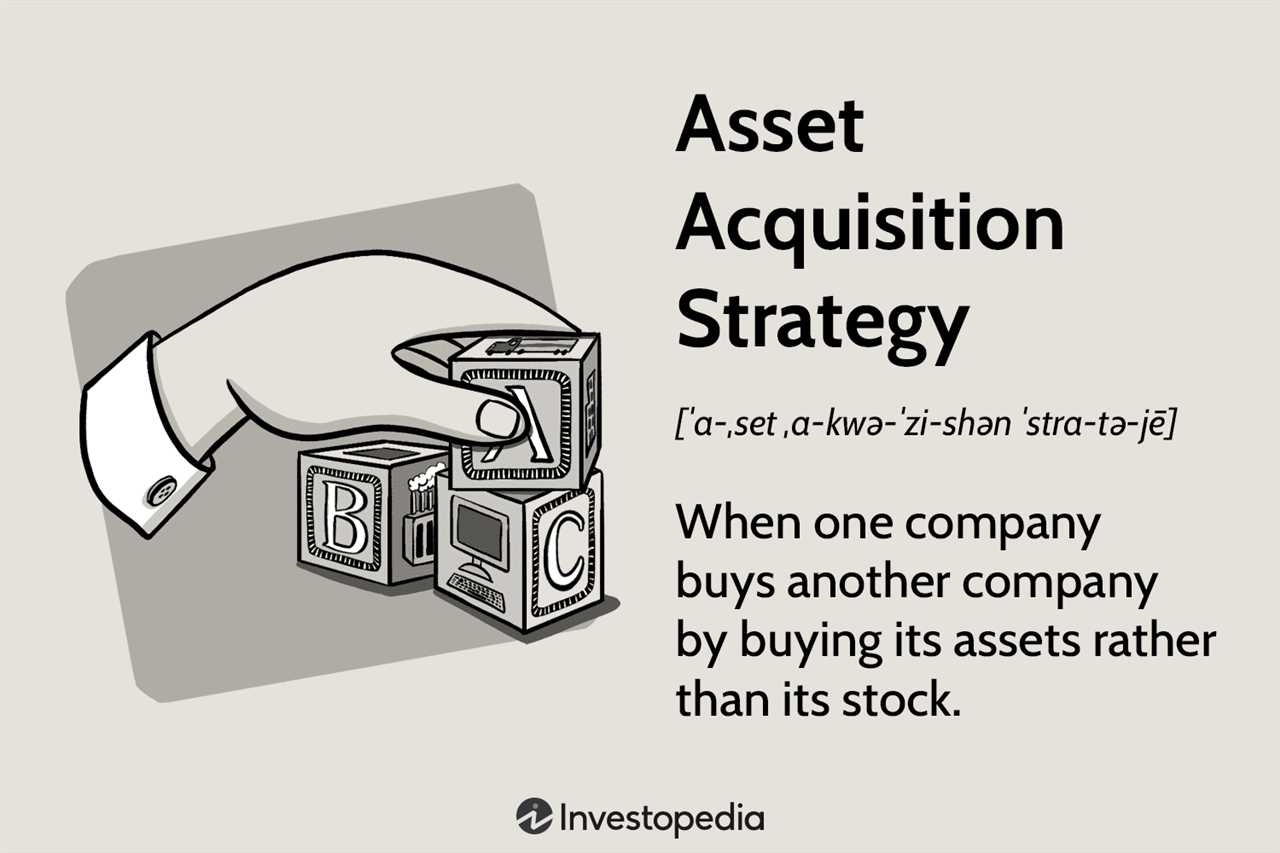Definition and Importance of Offers to Buy Assets

An offer to buy assets refers to a proposal made by a buyer to purchase specific assets from a seller. These assets can include tangible items such as real estate, vehicles, or equipment, as well as intangible assets like stocks, bonds, or intellectual property.
The importance of offers to buy assets lies in their ability to facilitate the transfer of ownership and value. By presenting an offer, a buyer expresses their interest in acquiring certain assets, while the seller evaluates the terms and decides whether to accept, reject, or negotiate further.
Moreover, offers to buy assets serve as a means of competition and market dynamics. Buyers can submit competing offers, driving up the price and creating a competitive environment. This benefits sellers by potentially increasing the value of their assets and maximizing their return on investment.
In summary, offers to buy assets are essential in facilitating transactions, establishing fair terms, and promoting market competition. They provide a structured approach to buying and selling assets, ensuring transparency and efficiency in the process.
Role of Offers in the Trading Skills Category
In the trading skills category, offers to buy assets play a crucial role in facilitating transactions and maximizing profits. These offers serve as a means for individuals and businesses to express their interest in purchasing specific assets, such as stocks, real estate, or commodities.
Offers to buy assets act as a starting point for negotiations, enabling buyers to present their terms and conditions to sellers. They provide a clear indication of the buyer’s intent and willingness to engage in a transaction, setting the stage for further discussions and potential agreements.
By making offers to buy assets, traders can take advantage of favorable market conditions and secure valuable assets at competitive prices. These offers allow buyers to express their desire to acquire assets that align with their investment strategies and objectives.
Furthermore, offers to buy assets contribute to market liquidity by creating opportunities for sellers to monetize their holdings. They provide sellers with a pool of potential buyers, increasing the chances of finding suitable matches for their assets.
Offers to buy assets also play a vital role in price discovery. As buyers submit their offers, the market reacts to the demand and supply dynamics, leading to price adjustments. This process helps establish fair market values for assets and ensures efficient price formation.
Types of Offers to Buy Assets
In the trading skills category, offers to buy assets can take on various forms depending on the nature of the transaction and the preferences of the buyer and seller. Here are some common types of offers to buy assets:
1. Cash Offers

2. Exchange Offers
An exchange offer involves the buyer offering to exchange one asset for another. This type of offer is commonly seen in barter transactions or when the buyer has a specific asset they want to acquire and are willing to trade another asset of similar value for it.
3. Auction Offers
An auction offer is a type of offer where the buyer participates in an auction process to acquire the desired asset. The buyer submits a bid, and if their bid is the highest, they win the auction and can proceed with the purchase. Auction offers can be competitive and require careful bidding strategies.
Cash Offers
Cash offers are a type of offer to buy assets where the buyer offers to pay the seller in cash. This type of offer is commonly used in various trading skills categories, including real estate, stocks, and commodities.
Cash offers are attractive to sellers because they provide immediate payment and eliminate the risk of non-payment or delayed payment. By offering cash, buyers can often negotiate a lower price or secure a faster transaction.
In the real estate market, cash offers are particularly common in situations where buyers want to stand out in a competitive market. Sellers often prefer cash offers because they are more likely to close quickly and without complications.
In the stock market, cash offers can be used to acquire shares of a company. This can be done through a tender offer, where the buyer offers a specific price per share to existing shareholders. Cash offers in the stock market can also be used in mergers and acquisitions, where one company offers to buy another company’s shares in cash.
In the commodities market, cash offers are used to buy physical commodities such as gold, oil, or agricultural products. Buyers offer a specific amount of cash per unit of the commodity, and sellers can choose to accept or reject the offer based on market conditions.
Overall, cash offers are a versatile and widely used type of offer to buy assets. They provide sellers with immediate payment and can often lead to faster and smoother transactions. Whether in real estate, stocks, or commodities, cash offers are an important tool in the trading skills category.
Exchange Offers
Exchange offers are a type of offer to buy assets where the buyer proposes to exchange one asset for another. This can be a valuable strategy for traders looking to diversify their portfolio or acquire specific assets.
How Exchange Offers Work
In an exchange offer, the buyer presents an offer to the seller, stating that they are willing to trade one asset for another. This can be done through a formal proposal or negotiation process, depending on the circumstances.
Exchange offers can be beneficial for both parties involved. The buyer may be seeking a specific asset that the seller possesses, while the seller may be interested in acquiring the asset that the buyer is offering. By exchanging assets, both parties can achieve their desired outcomes.
Benefits of Exchange Offers
There are several benefits to participating in exchange offers:
- Diversification: Exchange offers allow traders to diversify their portfolio by acquiring different types of assets. This can help spread risk and potentially increase returns.
- Access to specific assets: Exchange offers can provide traders with access to assets that may be difficult to acquire through other means.
- Opportunity for negotiation: Exchange offers often involve a negotiation process, allowing both parties to discuss and potentially reach a mutually beneficial agreement.
Overall, exchange offers can be a valuable tool for traders looking to acquire specific assets or diversify their portfolio. By participating in exchange offers, traders can take advantage of unique opportunities and potentially enhance their trading skills.
Auction Offers
Auction offers are a type of offer to buy assets that involve a competitive bidding process. In an auction, potential buyers submit their bids, and the highest bidder wins the asset. Auction offers are commonly used for high-value assets or unique items that are in high demand.
How Auction Offers Work
Auction offers typically have a set duration, during which potential buyers can submit their bids. The auction may take place in person, such as at an auction house, or online through a bidding platform. Interested buyers can participate by placing bids that are higher than the previous highest bid.
The auction process is usually overseen by an auctioneer or a bidding platform, who ensures that the bidding is fair and transparent. The highest bidder at the end of the auction period is declared the winner and is obligated to complete the purchase.
Benefits of Auction Offers
Auction offers provide several benefits for both buyers and sellers. For buyers, auctions offer the opportunity to acquire assets at potentially lower prices than in traditional buying methods. The competitive nature of auctions can drive prices down as bidders try to outbid each other.
- Auction offers are commonly used for high-value assets or unique items.
- Potential buyers submit their bids, and the highest bidder wins the asset.
- The auction process is overseen by an auctioneer or a bidding platform.
- Auctions offer the opportunity to acquire assets at potentially lower prices.
- Sellers benefit from attracting a larger pool of potential buyers.
- Auctions can help sellers quickly sell assets, especially if there is high demand.

Emily Bibb simplifies finance through bestselling books and articles, bridging complex concepts for everyday understanding. Engaging audiences via social media, she shares insights for financial success. Active in seminars and philanthropy, Bibb aims to create a more financially informed society, driven by her passion for empowering others.
